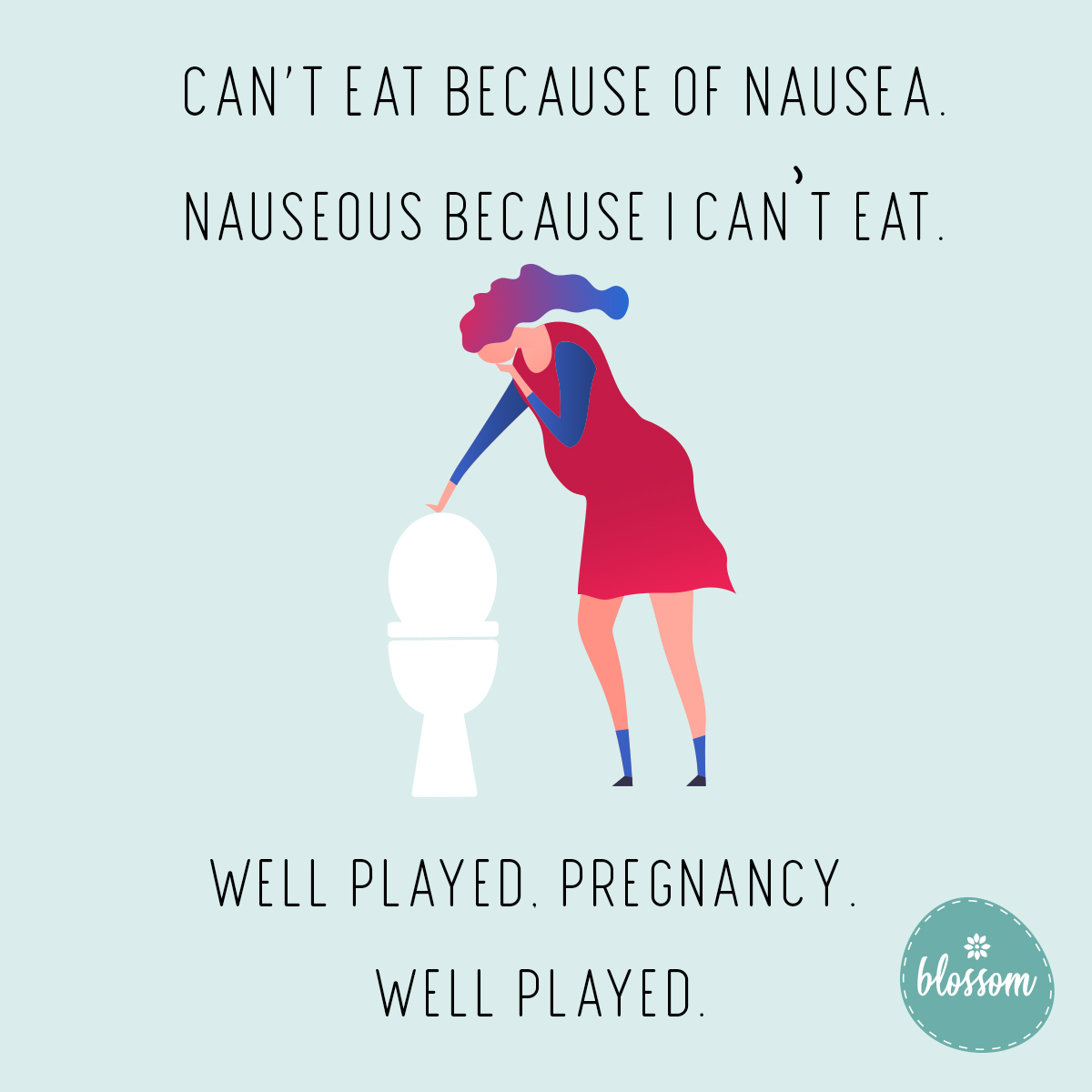One of the toughest symptoms women encounter in the 1st trimester of pregnancy is morning sickness. Any woman who has gone through it or is going through it, knows the first signs usually develop during the month following the first missed period, when hormone levels rapidly increase. It may range from mild, occasional nausea to severe, continuous, debilitating nausea with bouts of vomiting. In most cases, symptoms may be worse in morning, hence the name, but unfortunately it can strike day or night.
How Long Does Morning Sickness Last?
Despite all advances in medicine, there is no way of predicting how long your morning sickness will last even if you have suffered it before. Generally, nausea and vomiting last till about 12 – 13 weeks of pregnancy and most women are completely done with it by the 2nd Trimester. However, some women continue to feel ill throughout their pregnancy.
Is There Anything Good About Morning Sickness?
On the bright side, some studies show that mild to moderate sickness is a sign of a sound and viable pregnancy, with less risk of miscarriage. Though you may find it hard to make it through your day and get things done with morning sickness, it may make your partner or significant other feel useful by cooking and caring for you.
Ok, What Cures Morning Sickness?
There is no simple treatment for morning sickness. The best course of action is home treatment for mild to moderate morning sickness. The following tips can work wonders not only when you wake up feeling nauseous, but also when you get that queasy feeling during the day.
Tips for Reducing Morning Sickness
- Eat small, dry snacks.
- Don’t jump up out of bed immediately. Lie quietly for a while and nibble on crackers or something dry before you attempt to get up.
- Avoid drinking large quantities of liquid at a time, instead sip frequently throughout the day.
- Spicy, fried foods, and fatty foods like very rich sweets, are best avoided.
- Avoid excessive consumption of foods rich in salt.
- Avoid cooking or rooms where food preparation are taking place, as the smell can cause nausea.
- Prepare food when you’re feeling the least nauseous.
- Drinking lemon or orange juice in the morning before meals can help relieve nausea.
- Suck on an ice cube until nausea passes.
- Sip on cool water.
- Try using products such as pregnancy pops for the onset of nausea.
Products to Help with Morning Sickness
Changing what, when and how much you eat coupled with certain changes to the way foods are cooked can help manage morning sickness and pregnancy nausea. You may find that eating five or six small meals, rather than three large ones is easier on the body and prevents blood sugar spikes and dips. Make sure each meal contains some protein and carbohydrate, like whole wheat bread with grated cheese and a slice of tomato, rice or wheat with some easily digestible / light cereals, orange juice and a whole wheat biscuit. Be creative; choose healthy foods whenever possible. Aversions to food because of nausea are perfectly normal and understandable!

If you have severe, persistent nausea and vomiting, see your doctor or healthcare provider, as being this ill can lead to dehydration and malnutrition. Sometimes calling prescribed medication can help, and in severe cases hospitalization may be required. Although most drugs are best avoided in pregnancy, especially in the early months, there are some that have been in use for many years with no apparent danger to the developing baby to aid pregnant women with morning sickness.
Just try to remember that your morning sickness and nausea are temporary and are a part of growing that awesome human being!




